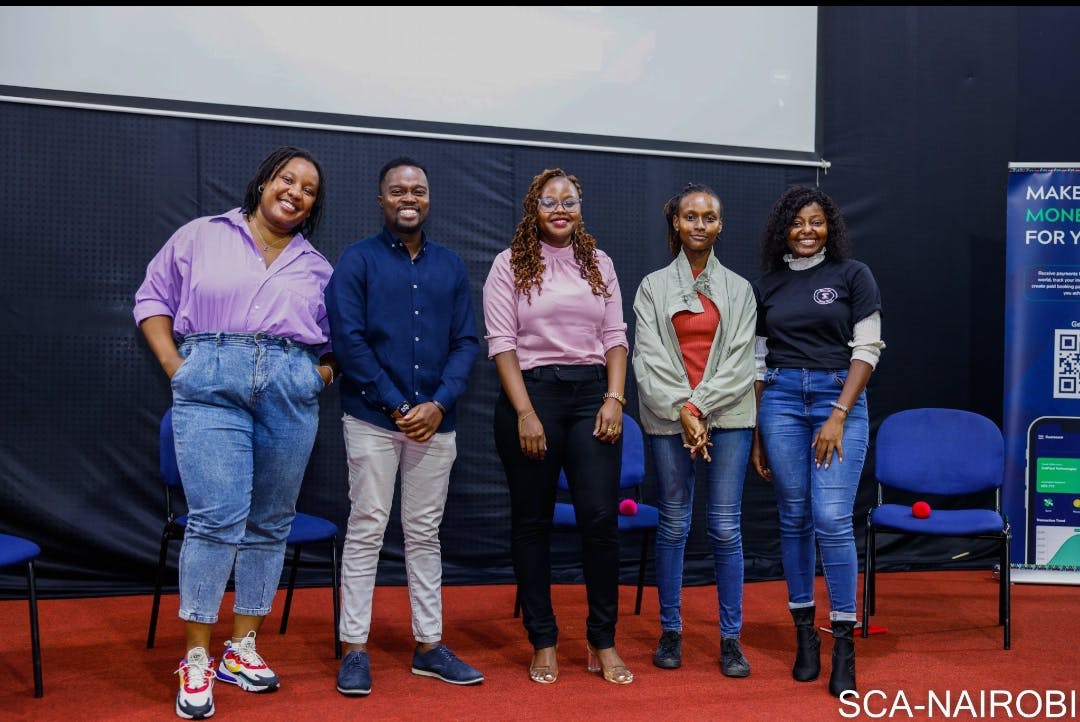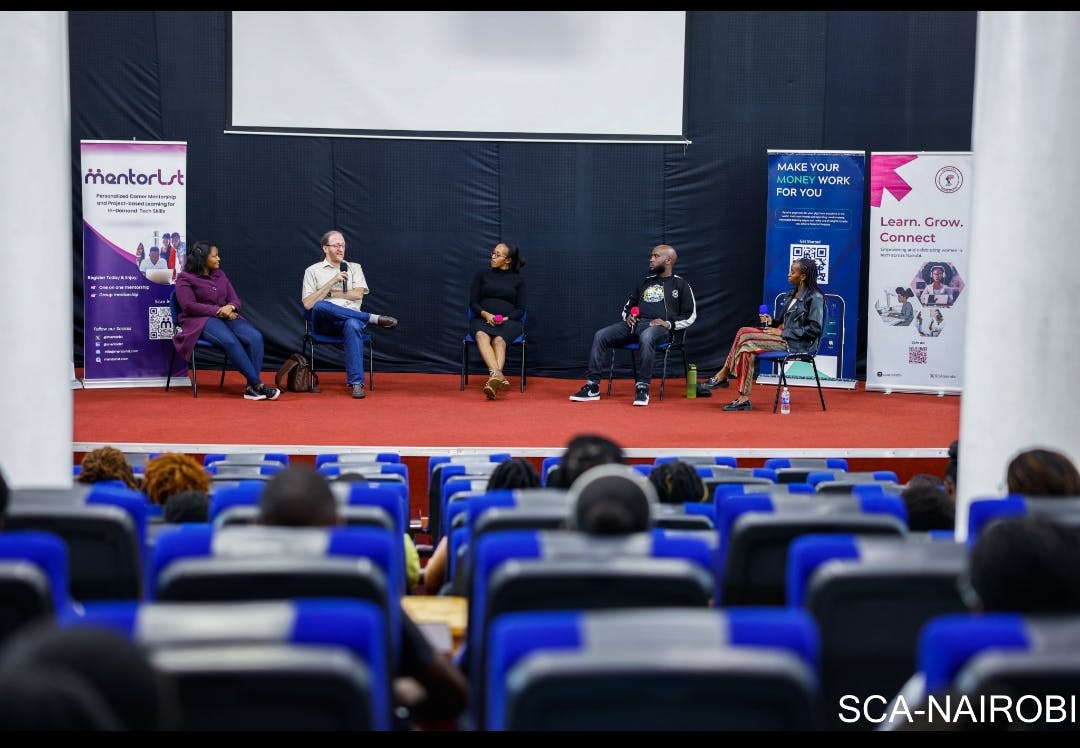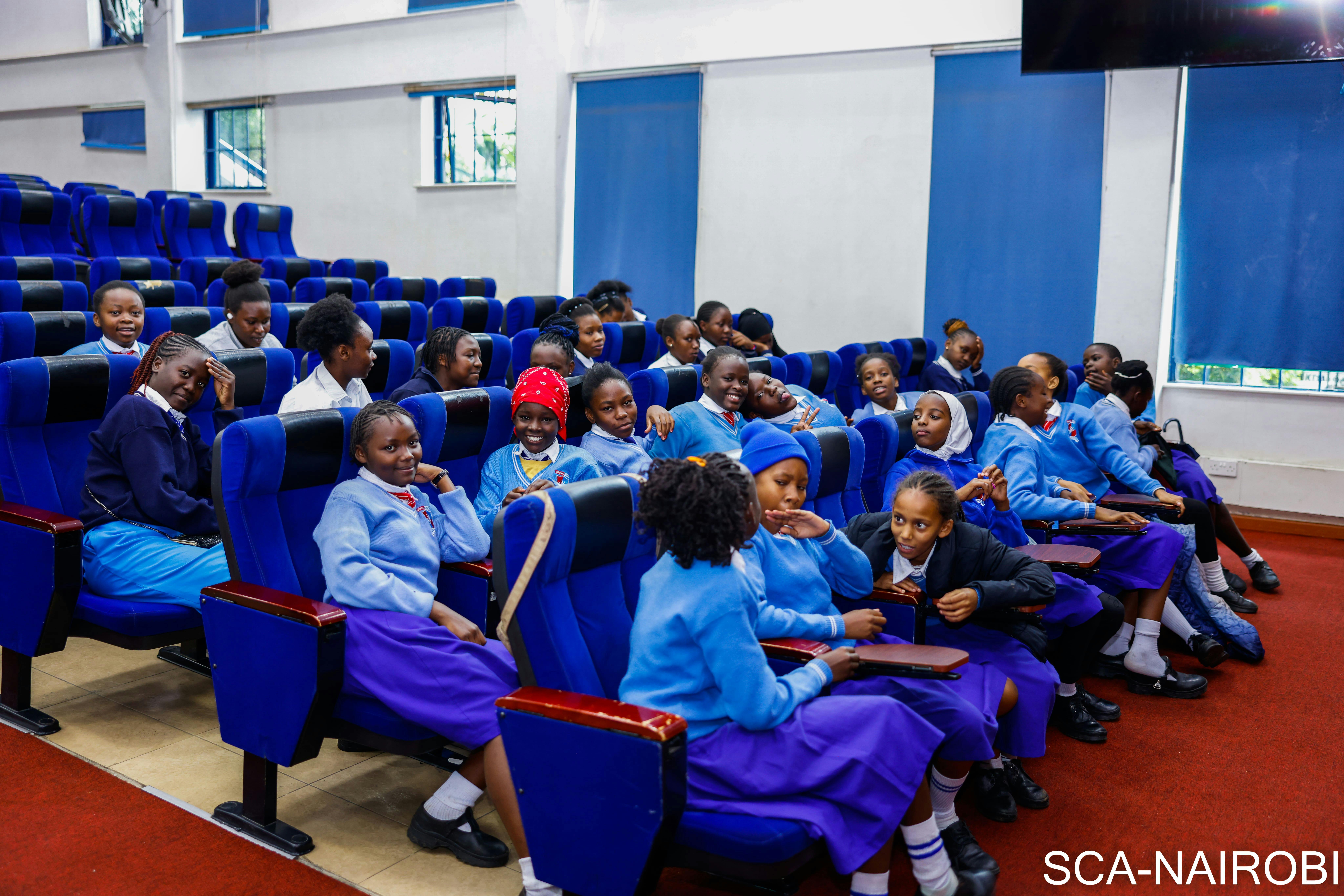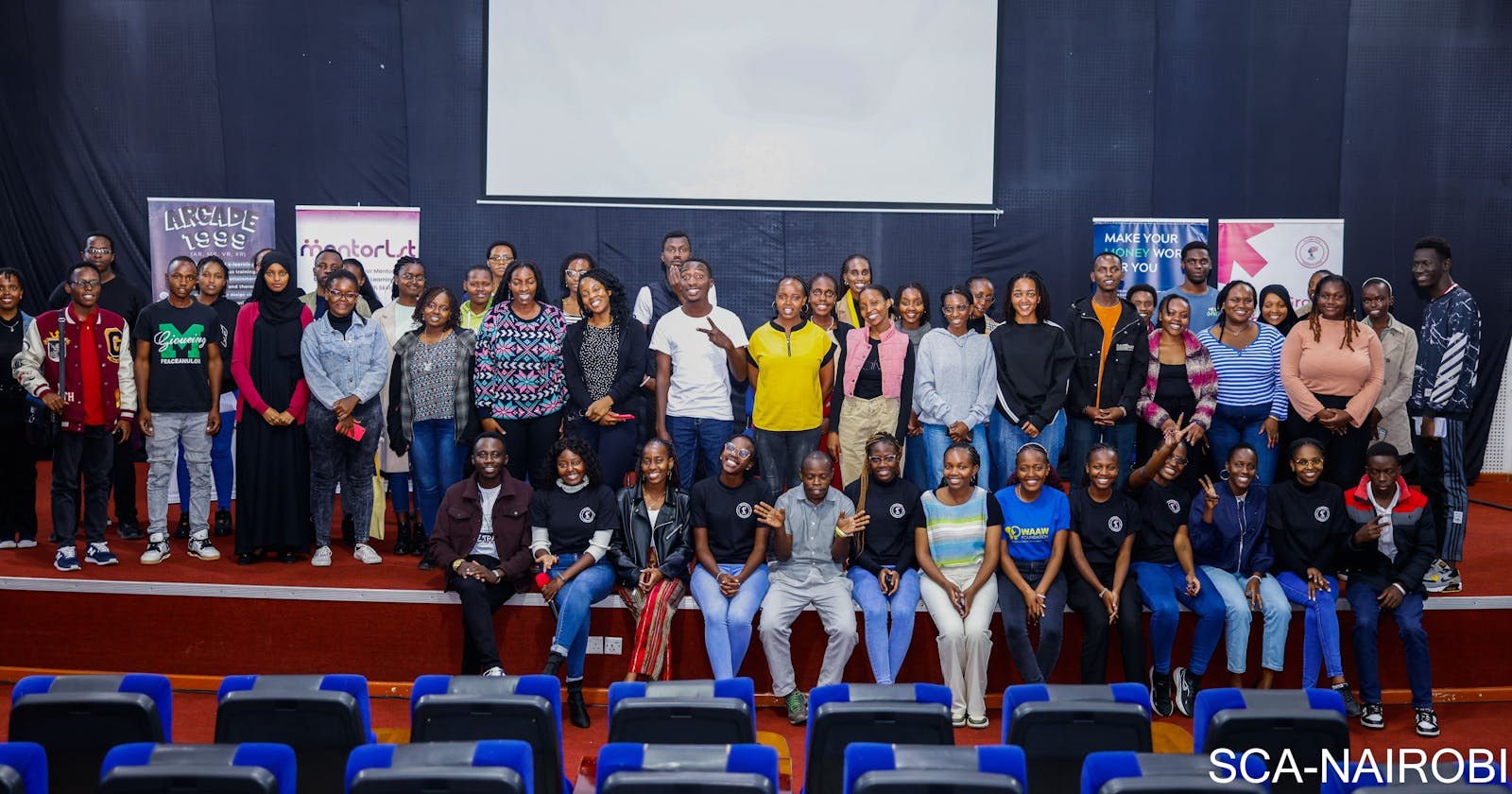The recent She Code Africa Nairobi "kick start your tech career" event provided a valuable opportunity to delve into the intricacies of launching a career in the tech industry through in-person sessions. With a diverse panel of speakers on different areas, attendees gained valuable insights. Here are some notable highlights from the talks.
Keynote Speaker: Ben Roberts
When it comes to technology, having a good foundation is key. Ben Roberts indulged in great TV shows that shed light on fascinating facts, reading factual books on technology, and exploring the world of science fiction.
Did you know Ben Roberts, the Group Chief Technical Officer at Liquid Intelligent Technologies, bought his first computer at 14 from the money he collected delivering newspapers, He mentioned that in life, when things are not handed to you on a silver platter, you have to explore and be proactive.
When it came to career goals, here were the main takeaways from his talk :
Setting goals is the first step to a clear career pathway.
Continuous learning is key currently, AI is the talk of the town, but people need to note that this is not the only emerging technology to keep an eye on.
Navigating Tech Tracks Career Opportunities and Industry Evolution
On the panel discussion, we had Roina Ochieng, Senior Product Manager at Kasher Global; Mukiri Mwirigi, Project Manager at Africa Blockchain Center, Fanice Gitahi, Cloud Platform Support at Liquid Intelligent Technologies, and Saruni Maina, Associate VP at Flutter Wave.

While discussing emerging trends in tech, Roina mentioned generating one's path by being open to learning; this could include creating projects, using YouTube to grow skill sets, and being consistent by practicing. Saruni talked about the world being a global village, and because of the continuous tech evolution, one needs to figure out how best their product can penetrate the market based on a consumer-based approach. Mukiri talked about having a good base on the part of technology that interests you, and lastly, Fanice mentioned that tech is more than just writing code; following one's intuition and pursuing what one believes in is really what resonates with them.
When asked about their take on mentorship, Mukiri talked about the importance of meeting smarter people than you and learning the reality of how things work. Fanice mentioned how, through her internship, she got mentorship that shaped her career. Roina gave tips on identifying why, as a person, you might need a mentor in the first place and being deliberate. It's also important to be considerate of the mentor's schedule and maintain a professional boundary. Saruni, on the other hand, highlighted the importance of knowing one's pitch when it came to looking for mentors and looking at the perspective of going to someone only when needed.
Upon reflecting on the career journey of our esteemed panelists, here are the takeaways:
Position yourself out there—be above average and continuously learn.
Do enough research to know all the areas in tech to avoid wasting yourself in the long run on an area you suck at.
Envision the kind of life you would like to have; getting involved in the community and working on projects can give you practical experience But here's the thing: it's not just about what you learn in university. It's about how you apply that knowledge and showcase your skills. Attend events, network, and strive to be the best at what you do.
Opportunities can be limited, and there's no shortage of talented individuals out there. So, what makes you stand out? Well, the key is to be genuinely yourself. Embrace your unique qualities and let your authentic self shine.
Keynote Speaker: Valentine Ruto
It's awesome that you explore your "why" and think about your passions and skills. Valentine Ruto talked about "Ikigai for techies", Here's a breakdown:
What you love: problem-solving and protecting user information.
You have a passion for tackling challenges and finding creative solutions. Plus, you value the importance of safeguarding user data, which is crucial in today's digital world.
What the world needs: How your code improves lives.
Your code can have a positive impact on people's lives by creating innovative solutions that make tasks easier, improve communication, or enhance efficiency. It's about using technology for the betterment of society.
What you can be paid for is your vote and market demand.
It's important to ensure that your skills align with market demand. By staying updated with the latest technologies and industry trends, you can find opportunities that not only align with your passions but also provide financial stability.
What you're good at Enhancing the above.
You're skilled at problem-solving and protecting user information. Additionally, you can focus on continuously improving your technical expertise and staying adaptable to new challenges and advancements in the tech industry.
By combining your love for problem-solving, your commitment to protecting user information, your ability to create code that improves lives, and your marketable skills, you can find a fulfilling path in the tech industry. Keep exploring and growing, and you'll find your sweet spot in the world of tech.
Exploring Tech Job Interviews and Learning Path
In the second panel, we had Andrew Alston, the CTO at Liquid Intelligent Technologies; Elizabeth Biamah, a talent acquisition specialist; Joseph Gichuhi, a data and engineering recruiter at Microsoft; and Anne Mukundi, a solution architect at Sand Technologies.

Andrew mentioned While some may underestimate or overlook the potential of Africa, it's crucial not to assume or generalize but rather to appreciate the richness and diversity Africa has to offer. By valuing and leveraging this diversity, Africa can thrive and make significant contributions to the global tech community, recognizing one's potential to drive innovation and contribute significantly to the global tech community.
Joseph stressed the value of collaboration and drawing on past experiences to navigate scenario-based challenges. He also told students using emails with affiliated universities to take advantage of the free learning opportunities offered by companies example Microsoft.
Biamah pointed out the affordability of talent in Africa, making it attractive This presents a fantastic opportunity for businesses and organizations to tap into the wealth of talent available in Africa and benefit from the expertise and skills at a more affordable cost. It's a win-win situation that can contribute to the growth and development of both individuals and businesses. Africa is full of talented individuals ready to make their mark on the tech industry. She also underscored the critical role of soft skills, alongside technical expertise, in maintaining productivity and meeting deadlines, advocating for a holistic approach to skill development.
Anne encouraged companies to recognize the value of hiring from Africa, emphasizing the fresh ideas, innovation, and diverse perspectives that African professionals bring, thereby challenging stereotypes and promoting diversity in the global workforce. When it came to soft skills she talked about, effective communication and individual accountability in the workplace, advising against the overuse of collective language.
The key takeaways when preparing for technical interviews are:
Do your homework research on people you are going to work for.
Also, be realistic; how is your skill set compared to others? If you ask for too much, you turn them off; if you ask for too little, there are many reasons why.
If you don't prepare, the competition is stiff out here. Despite opportunities being limited, good preparation makes you stand out.
Technical skills get you in the room; soft skills keep you in the room. There are deadlines to beat, How productive is it when you work remotely?
(work on 360-degree soft skills )
IoT Workshop: Investing in the Younger Generation.
She Code Africa also had a session for high school students, who had an interest in the IoT and Python programming languages.

The students got to further understand how GPIO (general-purpose input/output), a port that handles both incoming and outgoing digital signals, works. Understanding inputs—sensors to grab data from the environment—and outputs could be from LEDs, buzzers, or speakers through emails and messages.
Thank you for joining us! In case you missed the event, I hope this technical report will provide valuable insights to enhance your tech journey and inspire your future career goals. Your feedback, too, would be appreciated. Remember, success in your tech journey requires dedication and effort. Cheers to your continued growth and achievement!

